Designing a Character-based Curriculum via the Service Learning Framework
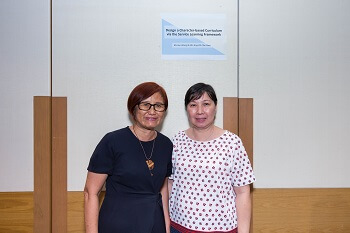
Introducing young children to the concept of moral values can positively influence their choices in the future. ECDA Fellows Mrs Ang-Oh Chui Hwa and Ms Ava Wang guide fellow centre leaders on how to effectively develop and implement a character-based curriculum in their centres through their IBAP project.
The early years are crucial in a child’s development. During this period, improving a child's cognitive abilities is vital, but there is far more to child development than just academic skills. While we consciously work to develop children intellectually, we should build their character and values as well.
"It is at that young age when children are constantly looking for role models, and developing their principles and ideals, that will heavily influence their life choices in the future," said Ms Ava Wang, Senior Quality Specialist at My First Skool.
Some might be wondering — aren’t concepts such as moral values too abstract for the little ones to understand? According to Mrs Ang-Oh Chui Hwa, Principal at Far Eastern Kindergarten, "People have the misconception that preschoolers are too young to learn values. But actually, no one is ever too young to help others". In fact, preschool children are mouldable in the early years. It is up to the teachers and parents to provide relatable opportunities for them to pick up important life lessons and develop moral values from young.

Service Learning for Effective Character Education
Mrs Ang-Oh and Ms Wang, both ECDA Fellows, understand the significance of character development in early childhood. They aim to guide centre leaders on how to incorporate it into their curriculum through their Inquiry-Based Action Plan (IBAP) project, “Designing a Character-based Curriculum via the Service Learning Framework”. Service learning is an educational approach that combines learning objectives with community service for preschoolers while addressing the community’s needs. This allows the children to learn values through active engagement and reflection.

Owing to the intangible nature of values, children need more concrete examples to grasp the concept. This is where service learning comes in to support a character-based curriculum. It facilitates children’s understanding by allowing them to be deeply involved in activities that support or benefit others. To be truly effective, a character-based curriculum must also allow children to understand both how and why the task is being performed. Children have to realise that it is a meaningful endeavour, and not just because they will receive a reward for doing it.
“A successful outcome would be children exhibiting these values intrinsically, without instruction or reward,” said Ms Wang. “Through the process of learning, service and reflection, our children will have these values naturally inculcated in them”.
A frequent practice Mrs Ang-Oh does with her preschoolers shows how one can incorporate small but meaningful lessons into the curriculum. Instead of buying stationery or presents for the children every Children’s Day, she gives five dollars as a seed fund to each child and asks them to choose whether to keep the money or donate it to charity. She would use the opportunity to explain how the money can be used to help others. The children sometimes choose to keep the money in the first year, but decide to use it to help others in subsequent years. Mrs Ang-Oh said, “Through this simple exercise, children develop the understanding that the act of giving up this five-dollar note is a way of showing care to others”.

Children need active engagement and reflection along their service learning journey. The educators therefore have a big part to play in guiding them through the process and in modelling the values during interactions with the children and others.
Beginning the IBAP Journey
Having been coaching educators for years, Mrs Ang-Oh has come to recognise the common difficulties that centre leaders face in implementing service learning at their preschools. To address the issue, she formulated an accessible and practical guide called the 4Ps 5Rs Service Learning Model. In the IBAP, the ECDA Fellows use this learning model to guide educators on how to incorporate service learning into the curriculum.
With a thorough understanding of the service learning concept and the 4Ps model, IBAP participants head back to their centres to put their newfound knowledge and skills to use. Under the professional guidance of the ECDA Fellows, they implement service learning activities at their respective centres. After a few months of implementation, the IBAP group would gather to share progress of their individual projects and learn from the ECDA Fellows and their peers on how to improve their processes. These sharing sessions give each participant a glimpse into the service learning projects that other preschools are working on, with supplementary learning points from the ECDA Fellows.
“They (ECDA Fellows) were practical in their suggestions and advice. These helped me gain better insights into what I should include and how I could implement different methods,” said Ms Jasawant Kaur, Centre Leader at PCF Sparkletots @ Blk 337 Sembawang Crescent.
Service Learning in Action
Ms Kaur joined the IBAP because she wanted to learn how she could blend character education into the curriculum. “It is not only important to instil values and character in children, but to also ensure its effectiveness in sustaining holistic child development,” said Ms Kaur.

During the IBAP, she managed to implement a service learning project at her centre, with the support of Mrs Ang-Oh and Ms Wang. The aim of the project was to show that no act of kindness, no matter how small, is ever wasted. Throughout this month-long project, children engaged in various activities that demonstrated care for others. They assisted in charitable work such as packing food donations for needy children with the help of their parents. During the preschool’s Family Day event, the children were taught how to show care for their loved ones through simple bonding activities, such as giving a back massage or conducting a nail spa treatment at a “Pampering Station”. The children also got to interact with the elderly at an old folks’ home, teaching them more about care and compassion. This message of kindness was further reinforced through helping parents at home.
 |  |
“Parents were very supportive and happy that their children were learning to show empathy, respect and care for others, as well as the environment.” Ms Kaur added.
Getting Service Learning into Your Centre
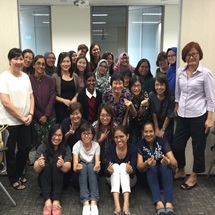
For early childhood educators working to incorporate a character-based curriculum in their centres, the IBAP is a valuable resource in getting it up and running. It streamlines the learning process, which helps teachers effectively implement service learning with practical advice and proven methods.
When asked what advice she would give to centre leaders looking to implement a character-based curriculum, Mrs Ang-Oh emphasized one word: “Possibility”. She explained that it is common for people to worry about the many constraints involved when implementing something new. She encourages centre leaders to see constraints as opportunities, where even small adjustments in curriculum could benefit the children tremendously.
As for Ms Wang, she feels that centre leaders have to help teachers understand the impact they have on the children’s future, if they want to effectively incorporate service learning into their classes. “Once they (centre leaders) have won over the hearts and minds of the teachers, the sharing of best practices can help teachers learn how to effectively implement service learning in their lessons, while not taxing them too much in terms of time and effort”.
Learn more about the IBAP project “Designing a Character-based Curriculum via Service Learning” from Mrs Ang-Oh Chui Hwa!
Curious about who the ECDA Fellows are? Find out more about the ECDA Fellows initiative here!
Read about the Inquiry-Based Action Plan (IBAP) projects conducted by the ECDA Fellows here!
You may also like
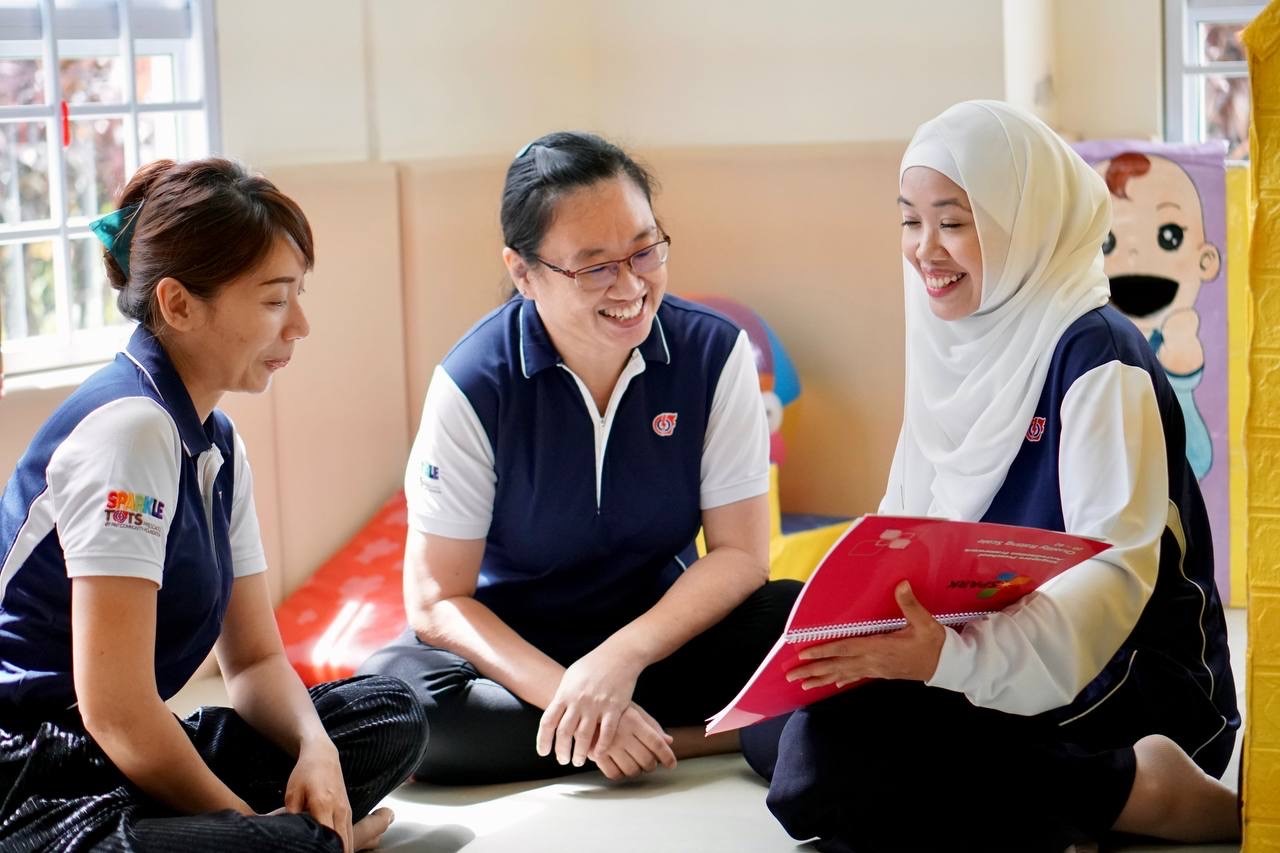
From Cabin to Classroom: Journey of an Outstanding Early Childhood Educator
The PDP modules allowed me to get creative with lesson ideas and keep up with the ever-changing Early Childhood sector.

Ms Farhana Binte Mohamed Hassan
Early Years Educator - PCF Sparkletots @ Pioneer Block 987D (CC)
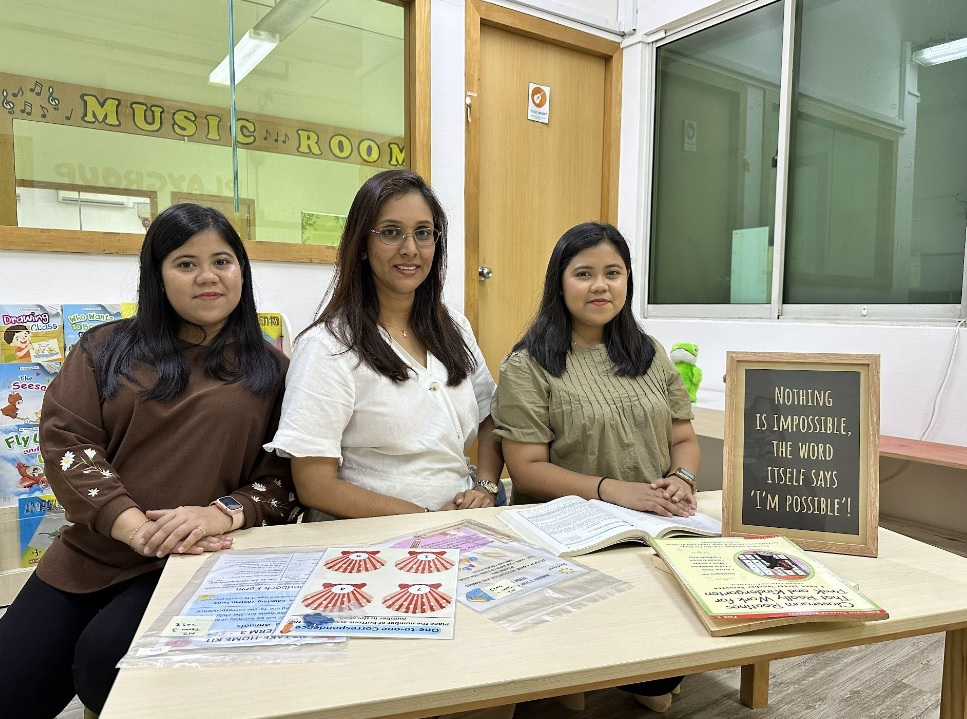
Translating Passion to Profession: Angelene, Nurziana and Sharidah's Voyage in Early Childhood Education
PDP has undoubtedly deepened the skill sets and enriched the expertise of exemplary educators such as (Nur)Ziana and Sharidah

Ms Jegatheswary
Cluster Head at Sunflower Preschool
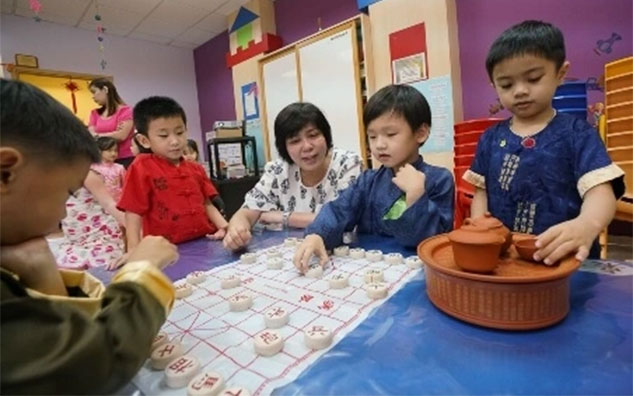
An Unwavering Passion
You need to have a passion for children, and I don’t mean just teaching them, but caring for them as well
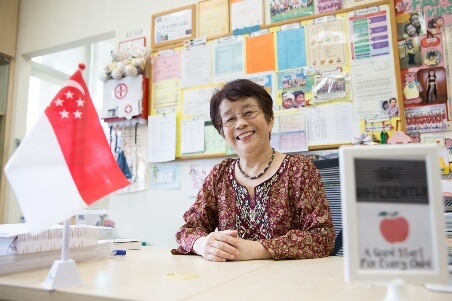
Mrs Elsie Yee
Principal - Faith Kindergarten
